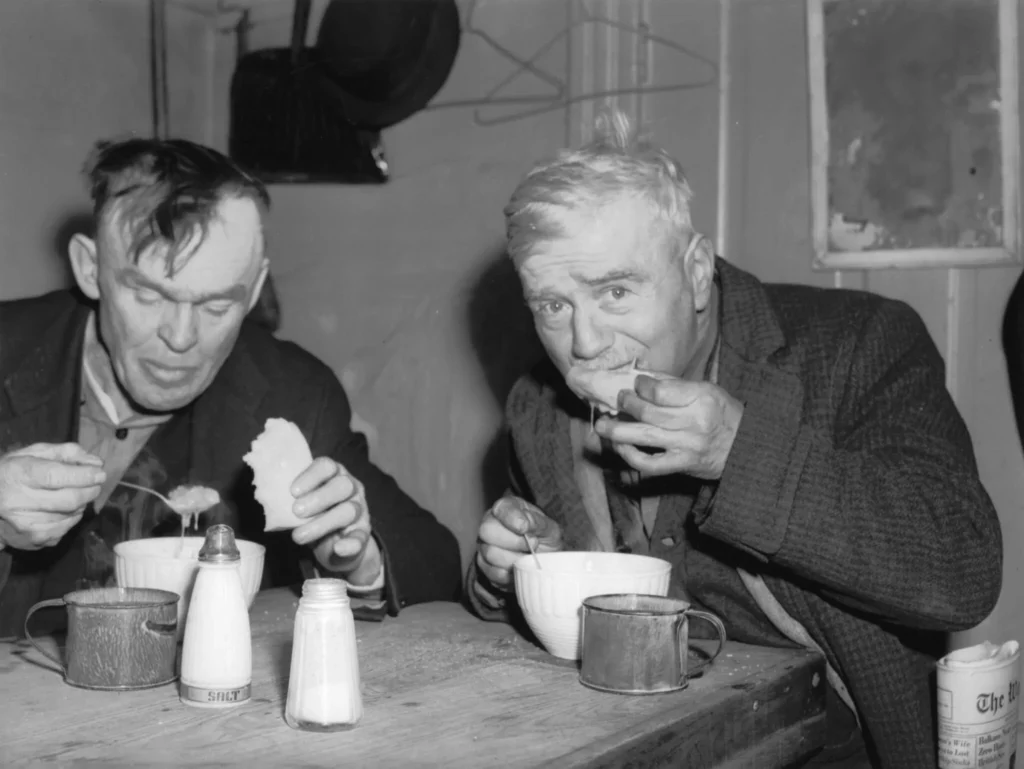I’ve seen hunger walk through a front door like it owned the place. 1932. My youngest hadn’t eaten in two days, and I was staring at a war medal that couldn’t be traded for bread.
I served in France in 1918. Dug trenches with frozen fingers, carried buddies with blown-out legs, and returned home with a chest full of pride—and an empty wallet.
When the banks collapsed, so did our town. Jobs dried up like rain in July. We patched shoes with cardboard, shared onions like currency, and prayed the government hadn’t forgotten us.
One day, I walked forty miles to reach a civil works camp, where they paid you a dollar a day to move rocks. I didn’t complain. I sang while I shoveled. Because that dollar meant my kids would eat.
The triumph isn’t in surviving. It’s in not letting the bitterness take root. I taught my kids to laugh, to plant potatoes in the yard, to stand tall even when kneeling felt easier. We didn’t escape the Great Depression—but we endured it. And not with luck. With love, grit, and the kind of faith that grows deeper in lean soil.
Veterans weren’t heroes to banks or bosses back then. But we were heroes to our children. That was enough.

